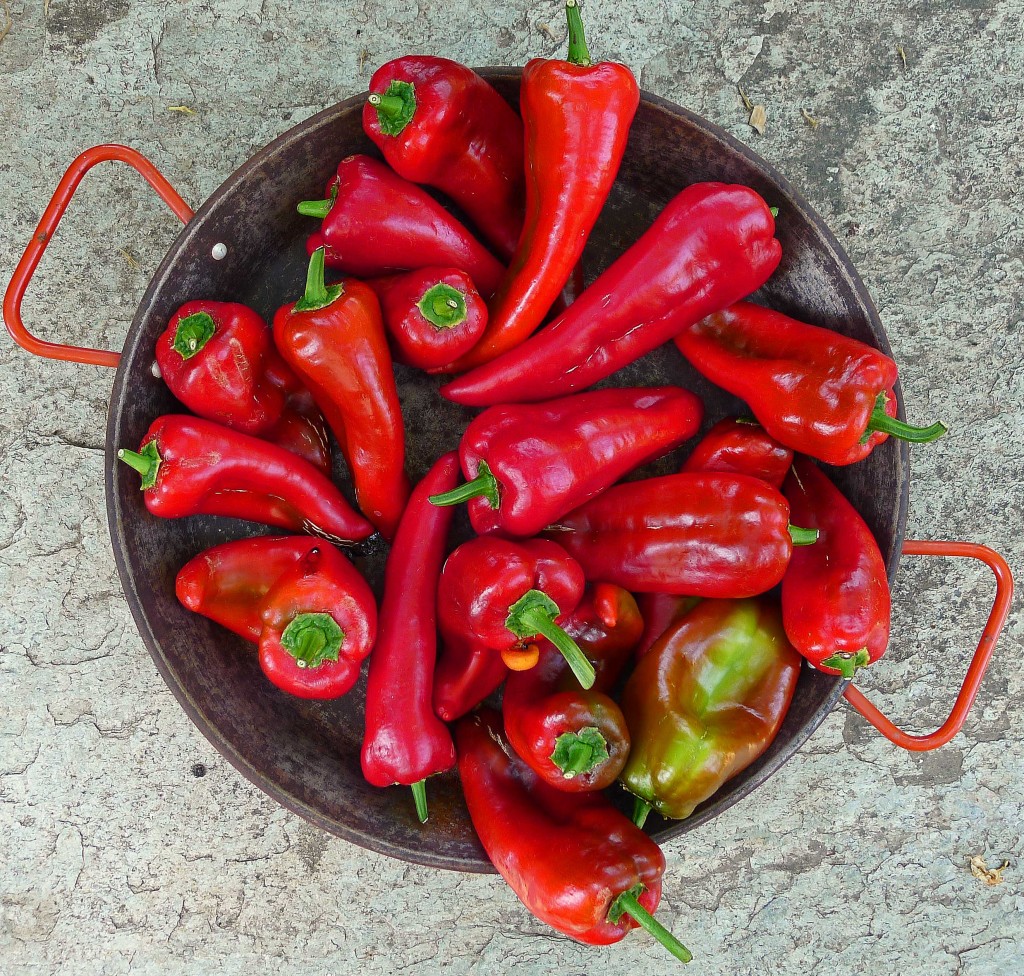Now that the tomatoes and most other summer vegetable plants have died in our garden, our peppers are still thriving!


Although peppers are New World vegetables and became part of the Mediterranean food basket quite late –sometime in mid-18th century— we very happily adopted them as our own and it is hard to imagine how we did without them.
We even created our own kinds of hot and sweet peppers, different in each country: this northern Greek ‘Florina’ pepper and the Spanish Ñora are sweet and delicious, while the various Middle Easter mildly hot Aleppo or Maraş pepper flakes are the perfect flavoring for all the dishes of the area.










